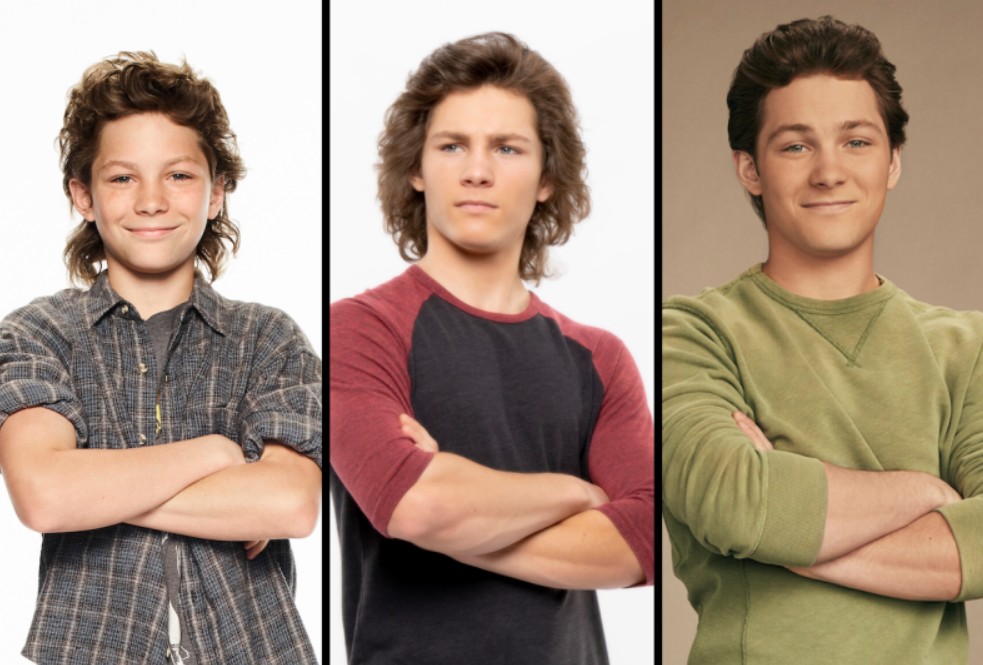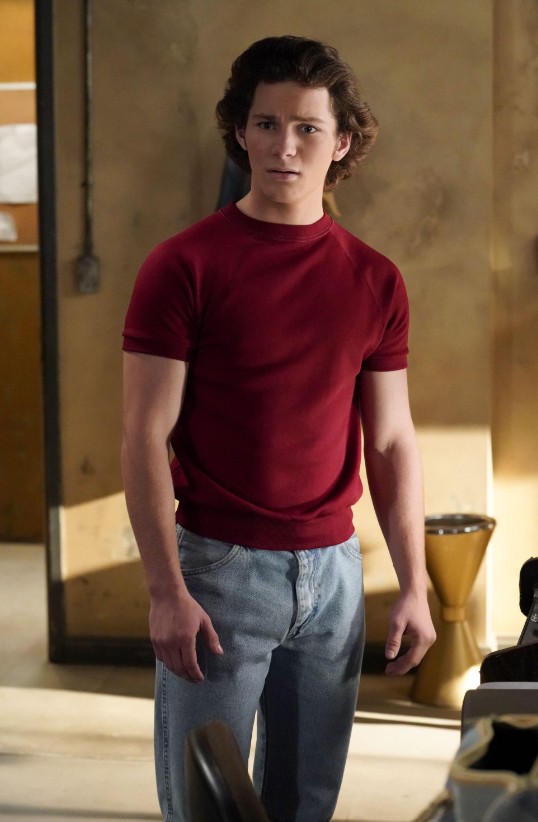Georgie Cooper Video Leak and the Internet’s Reaction
Montana Jordan, widely known for his role as Georgie Cooper on the hit sitcom Young Sheldon a prequel to The Big Bang Theory has recently been thrust into a controversy following a purported leaked video. Jordan, celebrated for his charismatic and relatable portrayal of Sheldon’s older brother, has been a fan favorite and a key contributor to the show’s success. However, the emergence of the alleged video has cast a shadow over his career, spreading rapidly across social media.

The video supposedly shows Jordan in a private, compromising situation while wearing a “Rowdy Cotton ’20” hat, sparking speculation and debate online. Its authenticity remains unverified, intensifying concerns over potential damage to his public image. In response, Jordan disabled comments on his Instagram and TikTok accounts, a move that drew mixed reactions from fans and the wider public. Some expressed support for his privacy, while others voiced curiosity or criticism over both the content and his response. This incident underscores the delicate balance celebrities must maintain between their public persona and private life in the digital age.
Contents
The Georgia Cooper Video Controversy
The controversy began when a video featuring Jordan surfaced online and quickly went viral before being removed. The footage, marked by the recognizable “Rowdy Cotton ’20” hat, appeared to capture a private moment that escalated to a sensitive scenario. Although not explicit in public descriptions, it was enough to grab widespread attention and raise debates about celebrity privacy and ethics surrounding leaked content.
Leaked Georgie Cooper Video Sparks Debate and Curiosity
The rapid appearance and removal of the video fueled speculation about the forces behind its spread and takedown, highlighting the challenges celebrities face in controlling their digital image. It also emphasized the responsibilities of social media platforms in moderating potentially harmful content.
Social Media Reactions
Responses on platforms like X (formerly Twitter) were immediate and intense. Many users debated the video’s legitimacy and morality, while clickbait tactics blurred images and provocative captions lured audiences, sometimes leading to misinformation or harmful links. These practices illustrated the dark side of social media, where viral attention often outweighs ethical considerations.

Fans’ reactions varied: some defended Jordan’s right to privacy, while others criticized the exploitative use of the video. The incident highlighted the challenges of maintaining ethical standards online and the rapid pace at which both information and misinformation can spread. Public conversation has since shifted from the video’s specifics to broader discussions on celebrity privacy, digital ethics, and the pressures of internet fame.
Montana Jordan’s Response
Amid the controversy, Jordan disabled comments on his Instagram and TikTok, a measure to protect himself from immediate backlash and online negativity. This decision allows him to regain control over his narrative and safeguard his mental health while curbing the spread of rumors.
Reactions to this move were mixed. Some fans praised his effort to preserve privacy and mental well-being, while others expressed disappointment, reflecting the tension between public access and personal boundaries that celebrities navigate daily.
This episode underscores the complexities of modern celebrity life, where private moments can quickly become public controversies, and the line between personal rights and public curiosity is continually tested.
Public and Fan Reactions
Reactions from Montana Jordan’s fans and the general public have been mixed, ranging from supportive to critical. Many expressed disappointment or suspicion regarding the situation. Social media became a hotbed for debate, with comments like, “This doesn’t feel right why shut us out now when we need to hear from you the most?” and “Everyone deserves privacy, but this makes it seem like he’s hiding something.” These responses illustrate the difficult balance celebrities must maintain between privacy and transparency.
Some fans felt alienated by Jordan’s decision to disable comments, interpreting it as avoidance rather than a necessary step for mental and emotional well-being. One tweet read, “He owes it to his fans to explain what’s going on,” reflecting a common sense of entitlement to public figures’ private lives. Conversely, many supporters rallied behind him, posting messages such as, “We stand with Montana no matter what privacy is a right, not a privilege.”

These reactions highlight a broader cultural shift in how celebrity scandals are consumed and perceived in the digital era. The Jordan incident underscores a growing dilemma: the public’s insatiable curiosity and the intrusive nature of modern media can often overwhelm personal boundaries. It raises important questions about whether society’s right to know can sometimes infringe on an individual’s right to privacy.
As this controversy unfolds, it serves as a microcosm of larger debates surrounding consent, privacy, and ethical responsibility both for the public and those who shape media narratives. The handling of this situation may well serve as a case study for future celebrity incidents in the digital age.
Future Implications
Montana Jordan is set to reprise his role in the upcoming spinoff, Georgie & Mandy’s First Marriage, which will explore Georgie Cooper’s life in more depth. However, the recent leaked video controversy could cast a shadow over this new project. Public perception may influence viewership and overall interest, particularly as celebrity image plays a crucial role in the success of new ventures.
Jordan’s management team is likely implementing strategic measures to address the situation. This could include a temporary public silence while gathering facts, followed by a carefully crafted statement clarifying the circumstances and asserting his position. Additional steps might involve emphasizing positive aspects of his career, charitable work, or other professional achievements. Legal action against unauthorized dissemination of the video could also be considered.
The incident highlights key aspects of celebrity life in the digital era: vulnerability to privacy breaches, the rapid spread of both information and misinformation, and the delicate interplay between support, judgment, and curiosity from fans and the public. It also stresses the importance of verifying information before drawing conclusions, as the full context and authenticity of the video remain unclear.
Overall, the situation reflects how modern celebrity culture intersects with digital media and public scrutiny. Figures like Montana Jordan must navigate not only their professional paths but also a complex online landscape filled with both opportunities and risks. This episode underscores the need for empathy, ethical consideration, and responsible public discourse in an age where private moments can become public controversies almost instantly.
Daily News -Yes King Original Video Leads the Meme Culture Movement
Rock Paper Scissors Yellow Dress Video Leak Sparks Frenzy
Jaden Newman Video Leak Hits X/Twitter and Reddit
Mar Urista Video Viral Leak Impact On Reputation
Georgia School Shooting Video and Public Reaction
Shannon Sharpe Instagram Live Video Incident Explained
Isabella Ladera y Beele video viral con Erome and Scandal

